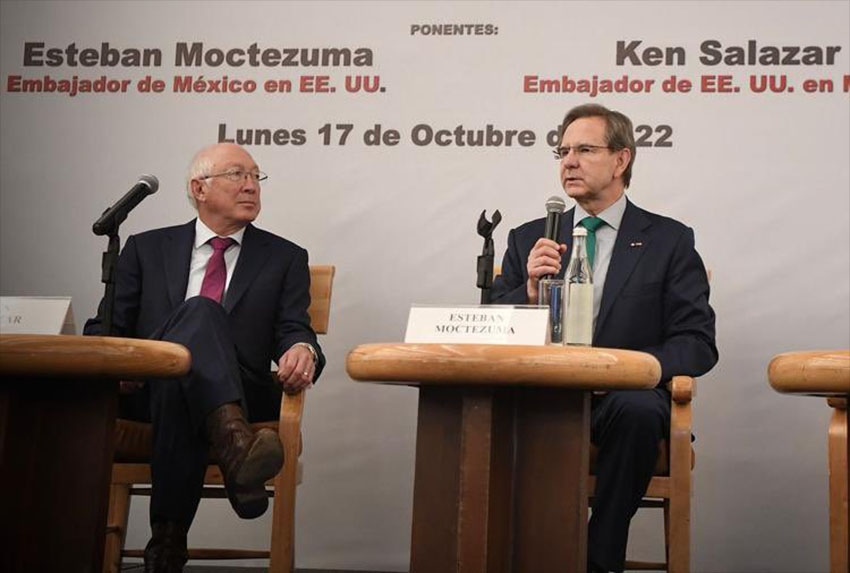U.S. Ambassador to Mexico Ken Salazar confirmed during a press conference on Monday that USMCA consultations over energy policy are ongoing.
President López Obrador painted a rosy picture of the situation on Oct. 14, saying that both Mexico and the U.S. want to avoid resorting to convening a dispute panel and expressing confidence that the U.S. would not request the panel’s intervention.
However, according to the newspaper Reforma, the Office of the United States Trade Representative denied any such intention and still considers invoking the panel a possibility.
If the energy policy complaint first presented in July by the U.S. and Canada under the USMCA agreement is unresolved by December, the issue will be addressed at the North American Leaders’ Summit, according to a statement by the Mexican ambassador to the U.S., Esteban Moctezuma.

The U.S. has argued that the Mexican government’s energy policies undermine U.S. stakeholders and privately produced energy in favor of Mexico’s two state-owned energy companies: the Federal Electricity Commission, or CFE, and Pemex.
Canada also joined the U.S. in requesting a dispute settlement consultation just days after the U.S. raised the issue.
Under USMCA rules, the three countries had until Oct. 3 to resolve the complaint. Talks, however, were extended past the initial consultation period by mutual agreement, rather than sending the case to a panel of experts to review.
Meanwhile, Mexico’s Economy Ministry has experienced a reshuffling in the midst of these trilateral negotiations.
Tatiana Clouthier resigned as Economy Minister on Oct. 6 and was replaced with the former head of the federal tax agency (SAT), Raquel Buenrostro. Deputy Economy Minister for International Trade Luz María de la Mora was also replaced by Alejandro Encinas Nájera, who previously worked at the Ministry of Labor and Social Welfare (STPS), where he “was in charge of all the USMCA rapid response procedures” according to the head of the ministry, Luisa María Alcalde Luján.
The private sector appeared to welcome the appointment of Encinas Nájera. As pointed out by José Abugaber, the president of the Confederation of Industrial Chambers of Mexico (Concamin), the main responsibility for Encinas Nájera will be to ensure a dispute panel is not convened.
If such a panel ruled in favor of the U.S. and Canada, punitive tariffs could be imposed on Mexican exports.
On Twitter, the Mexican Business Coordinating Council (the highest representative body of the private sector in Mexico) said that they were ready to start dialogue and cooperation with Encinas Nájera and with the new Deputy Minister for Commerce and Industry, Luis Abel Romero López.
Ambassador Moctezuma noted in his appearance at a manufacturing industry convention on Saturday that the U.S. and Mexico will celebrate 200 years of diplomatic relations in December.
“We’ve made sure that our bilateral mechanisms are as solid as possible and that there is a constant and institutionalized dialogue. That is what we achieved with the approval of the USMCA.”
With reports from El Economista, Reforma and La Jornada
